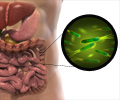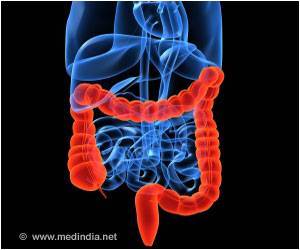Gut bacteria can sometimes lead to the production of a clot-enhancing compound known as trimethylamine N-oxide (TMAO) from a common nutrient found in food.
Highlights
- Choline-supplemeted diet has been associated with an increased risk of clotting by causing platelets to clump together.
- New findings state that the gut bacteria plays a role in producing trimethylamine N-oxide (TMAO), from choline found various foods.
- TMAO increases the risk for clotting, heart diseases and stroke.
The gut bacteria is known to convert the choline into trimethylamine N-oxide (TMAO).
It has already been proven that higher blood levels of TMAO are associated with a greater risk of heart disease, including heart attacks and strokes in humans.
Role of Choline
The small study recruited 18 volunteers of which 8 were vegan or vegetarian and 10 omnivores The average age of the patients was 46 years and 40% were males. Patients were free of heart diseases or major risk factors.
The findings showed that after 1-2 moths of choline supplementation, the blood levels of TMAO rose to more than 10 times in both vegan/vegetarian and omnivores groups.
The results also showed that daily supplemetation with baby aspirin (81 mg/day) reduced the ability of elevated TMAO levels to promote clot formation.
"Foods that raise TMAO may increase your risk for clotting and thrombotic events. Unless prescribed by your doctor, avoid supplements with choline. A Mediterranean or vegetarian diet is reported to help reduce TMAO," said Stanley L. Hazen, M.D., Ph.D., senior author of the study, chair of Cellular and Molecular Medicine, and section head of Preventive Cardiology & Rehabilitation at the Cleveland Clinic in Ohio.
The findings are published in the American Heart Association's journal Circulation.
Reference
- Stanley L. Hazen et al. Gut Microbe-Generated Trimethylamine N-Oxide From Dietary Choline Is Prothrombotic in Subjects. Circulation; (2017) doi.org/10.1161/CIRCULATIONAHA.116.025338
Source-Medindia
















